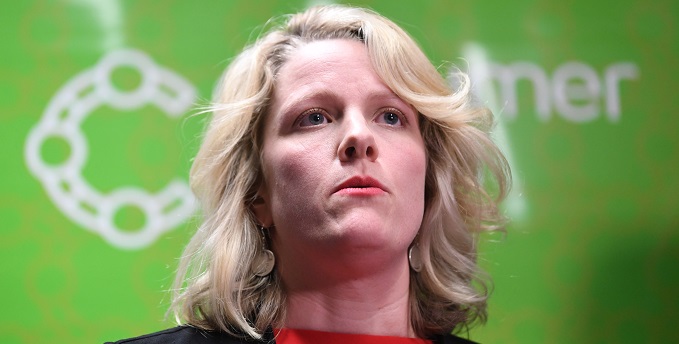
Home Affairs Minister Clare O'Neil. Source: AAP Image/Julian Smith.
Investment in innovation and technology is key to economic growth, post-pandemic — and immigration is key to strengthening the sector.
That’s according to Clare O’Neil, Shadow Minister for Innovation, Technology and the Future of Work.
Speaking at the National Press Club of Australia on Wednesday, O’Neil said Australia’s economy has been “in a funk” for decades.
There has been slow domestic growth, and not enough new businesses starting, she said. Of new businesses that do start, not enough are becoming globally competitive.
In a post-COVID-19 world, “it’s not a recipe for economic strength and resilience”.
O’Neil’s answer to this lies in “reigniting that reformist zeal which has gone missing”.
“We know we have to fire up new engines for growth — and for Australia, that means innovation, science, technology and manufacturing.”
Among other things, this should involve taking advantage of the opportunities for innovation posed by the climate change crisis, and making a significant national investment in research and development, she said.
But, if tech and innovation will boost the economy, Australia needs immigration reform.
“Immigration has been the special sauce in our national history,” O’Neil said.
“We have never, in post-colonial Australia, met any national challenge or done anything economically viable without truckloads of it.”
However, currently, more people are leaving Australia than arriving, she said. And this is happening for the first time since 1946.
O’Neil’s argument hinges on the suggestion that it’s easier to enter Australia as an unskilled temporary migrant than as a skilled, permanent migrant.
Since 2005, while the number of skilled migrants has remained about the same, the number of temporary unskilled migrants has increased some 250%.
This is not conducive to economic growth, she said.
“Of the most successful technology companies in America today, more than half were started by immigrants,” O’Neil said.
“Highly skilled people can lift the performance of everyone around them. They could help companies headquartered in Australia become world-class, and start their own innovative firms that employ hundreds of Australians,” she continued.
“Yet people with these unique skills — if they could ever make it to Australia — would have almost no pathway to stay here. How is that in our national interest?”
Handpicked for you

Proform Foods opens plant-based meat factory, as Australia plays catch-up to a $19 billion opportunity



COMMENTS
SmartCompany is committed to hosting lively discussions. Help us keep the conversation useful, interesting and welcoming. We aim to publish comments quickly in the interest of promoting robust conversation, but we’re a small team and we deploy filters to protect against legal risk. Occasionally your comment may be held up while it is being reviewed, but we’re working as fast as we can to keep the conversation rolling.
The SmartCompany comment section is members-only content. Please subscribe to leave a comment.
The SmartCompany comment section is members-only content. Please login to leave a comment.